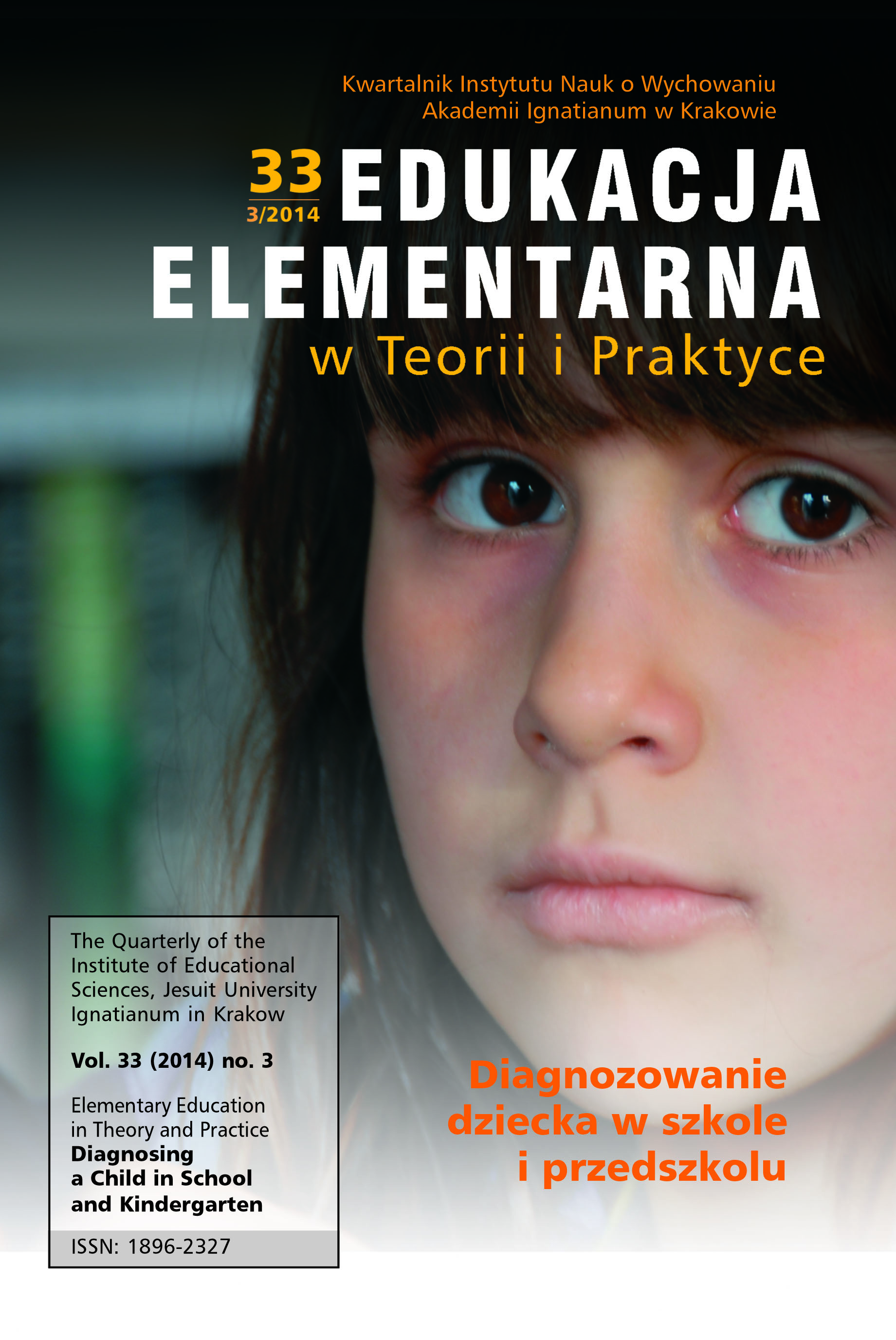Kompetencje diagnostyczne nauczycieli uczniów zdolnych w młodszym wieku szkolnym – doniesienie z badań
The Diagnostic Competences of the Teachers of the Talented Young Learners – Report from the Research
Author(s): Aneta Kamińska, Anna KowalczykSubject(s): Social Sciences, Education
Published by: Uniwersytet Ignatianum w Krakowie
Keywords: talented/gifted young learners; diagnostic assessment of the talented/gifted; conditioning of diagnosis; diagnostic competences of teachers; diagnostic procedure; holistic diagnosis;quantitative diagnosing;
Summary/Abstract: From the 1960s on, many improvements to the everyday lives of the disabled – in respect of convenience, etc. – have been introduced into society. However, the matter of their specific educational needs has only been taken up in developed European countries since the 1990s, and in our country from around 2000. Nowadays, their right to develop their abilities is clearly defined in legislation (so that it corresponds to a set of obligations placed on schools and teachers). Some more suitable methods of working with these students have been developed, and some appropriate procedures for testing their ability-levels have been adopted. At the same time, the diagnostic assessment of giftedness remains a frequently and energetically pursued topic amongst educators, psychologists and teachers. It is generally emphasized that the ongoing education of talented learners will depend on an effective diagnostic assessment of their abilities being conducted. Inappropriate assessment (such as overestimating or underestimating their capabilities, or a lack of any proper diagnostic focus) can do such gifted pupils a real disservice. Diagnosing talented learners is, after all, an integral part of their education, and one may observe its increasing use at the early stages of schooling. Knowledge of the right procedures, methods and diagnostic tools will tend to ensure that it is correctly employed, and that mistaken diagnoses are avoided. The purpose of this article is to show the complexity of what is involved in diagnostic assessment of talented young learners, paying special attention to the importance of the diagnostic competences of the teachers involved, and to the selection of the right conception of ability, both as a basis for further assessments and for adjusting the diagnostic tools to suit individual learners.
Journal: Edukacja Elementarna w Teorii i Praktyce
- Issue Year: 9/2014
- Issue No: 3 (33)
- Page Range: 123-138
- Page Count: 16
- Language: Polish

